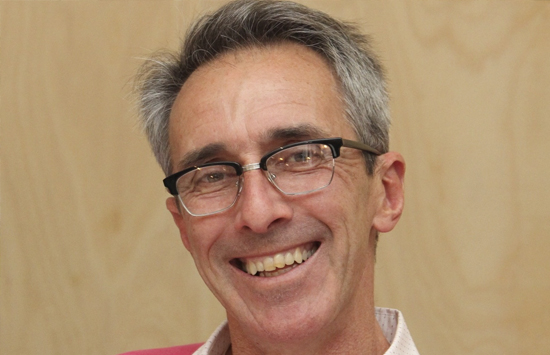
Citation
Geoff McFadden, a 1984 PhD graduate in Botany from The University of Melbourne, identified the relict chloroplast in apicomplexan parasites – a discovery that has revolutionised our understanding of one of the world’s major pathogens and opened up new strategies to battle the deadly disease, malaria. Geoff has focused his research on the biology and evolution of protists, the kingdom of life that includes algae as well as many other unicellular organisms. His research has shown, quite unexpectedly, that Plasmodium, the parasite responsible for malaria, is related to algae and contains a plastid – the chloroplast organelle that is responsible for photosynthesis in algae and higher plants. In apicomplexans, this organelle, now known as the “apicoplast”, no longer contains chlorophyll but has a circular DNA genome similar to all other plastids. This fundamental scientific discovery opened up novel approaches for studying and combating malaria. Geoff’s team has identified many new drug targets in the plastid of malaria parasites, vastly increasing the number of strategies for the development of much needed new anti-malarial drugs.
In recognition of the importance of his work, Geoff has been elected as a Fellow of the Australian Academy of Science and as an overseas associate to the Canadian Institute of Advanced Research. He has received two Howard Hughes Medical Institute International Scholar Awards, the Australian Academy of Science’s Frederick White Prize, The David Syme Prize, the Friedrich-Mieschner Prize for endosymbiosis research, the Julian Wells Medal for genome research, the Royal Society of Victoria Research Medal and the Ramaciotti Research Medal. Geoff has been the recipient of three consecutive major National Health and Medical Research Council (NHMRC) 5 year Program Grants in collaboration with some of Australia’s finest parasitologists, and has been an Australian Research Council (ARC) Professorial Fellow, and a Federation Fellow.
Geoff has published over 200 papers, many in high impact journals such as Nature, Science, PNAS, The EMBO Journal, Current Biology and The Journal of Cell Biology. His publications have attracted 14,000 citations, and he has an h-factor of 60. Thirty-eight of his papers have been cited more than 100 times, including six with more than 200 citations, three more with over 300 citations, three with more than 400 cites, one with more than 600 citations and one cited more than 3,000 times. Journal covers have featured images from his laboratory 20 times.
Geoff’s contributions to unraveling the evolutionary relationships of microscopic plankton and the origin of chloroplasts by endosymbiosis, placed him in the perfect situation for identifying a relict chloroplast in human parasites. He is the only botanist working on malaria and the only botanist to be a Principal Investigator in National Health and Medical Research Council (NHMRC) Program Grants. Similarly, he is the only botanist to secure grants from the Howard Hughes Medical Institute for Medical Research. He has crossed discipline boundaries, requiring a determination and flexibility to adapt to a difficult and demanding research subject. His success in obtaining funding support, and his wide-ranging collaborations with parasitologists, evolutionary biologists and botanists in universities, medical research institutions, hospitals, the military and non-government organisations, attest to the significance of his research success.
But over and above this, Geoff has been an outstanding mentor to young scientists and a loyal servant to the Australian Society for Parasitology. His graduate students and postdoctoral fellows have made outstanding contributions to parasitology, received competitive research fellowships and many have gone on to become strong, independent researchers now leading their own teams at prestigious national research institutions including The Walter and Eliza Hall Institute of Medical Research, the Burnet Institute, the Royal Botanic Gardens of Melbourne, the Bio21 Institute, The University of Melbourne, the Australian National University, plus renowned international institutions such as Nanyang University, the University of British Columbia, Université de Limoges, the University of Otago, the Pasteur Institute, the Sanger Institute, the University of Cambridge and Merck Pty Ltd. Geoff was one of the driving forces behind the establishment and the success of the ARC/NHMRC Research Network for Parasitology, and served on its the management committee from 2004-2010, then becoming the inaugural director of the Australian/European Malaria Research Network. He has helped to revitalise the discipline of parasitology in Australia over the last decade. Geoff has also been the President of the International Society of Evolutionary Protistology. He is a more than worthy recipient of the title, Fellow of the Australian Society for Parasitology.


